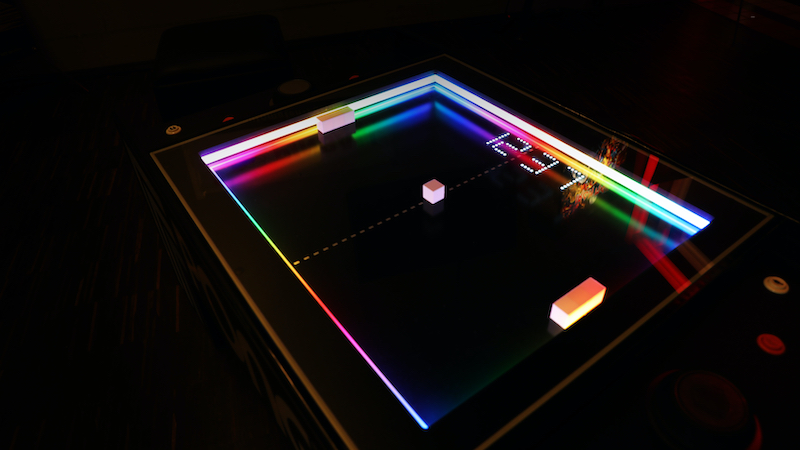Researchers use brain cells to teach computer chips how to play pong
Researchers at the Australian start-up Cortical Labs have developed a computer chip based on human brain cells and taught it to play pong. In doing so, they want to demonstrate the ability of such technology to learn.
The computer game Pong is considered an absolute classic. The principle is relatively simple. Players control a vertical or horizontal line and must hit a virtual tennis ball back and forth. Compared to current computer games, the game is very simple. Ideal conditions for training artificial brain cells with them.
researchers of the Australian biotech start-up Cortical Labs grew brain cells in the lab and let them play pong. The basis for this was stem cells from humans and mice. The researchers then integrated these cells into a silicon chip.
Computer chip: Software teaches brain cells strategies
The scientists also developed software that interprets electrical signals from the silicon chip and transfers them to the game of pong. If the biomechanical chip lost, the software sent feedback. With this feedback, the brain cells changed their strategy and got better and better.
In just five minutes, the computer chip went from loser to winner. The researchers thus proved how incredibly adaptable our brain cells are. This trait allows us to learn from mistakes and improve things.
The computer of the future is part mechanical and part biological
But what are Cortical Labs’ motives? Biological brains still have certain properties that no hardware in the world can simulate. This allows our brain to absorb large amounts of information and continuously adapt to the changing world.
One day, biomechanical prototypes can be developed from the information obtained. The team is currently testing the system with other games as well. It is hoped that this will make the algorithm more reliable and make the technology easier to access.
Also interesting:



